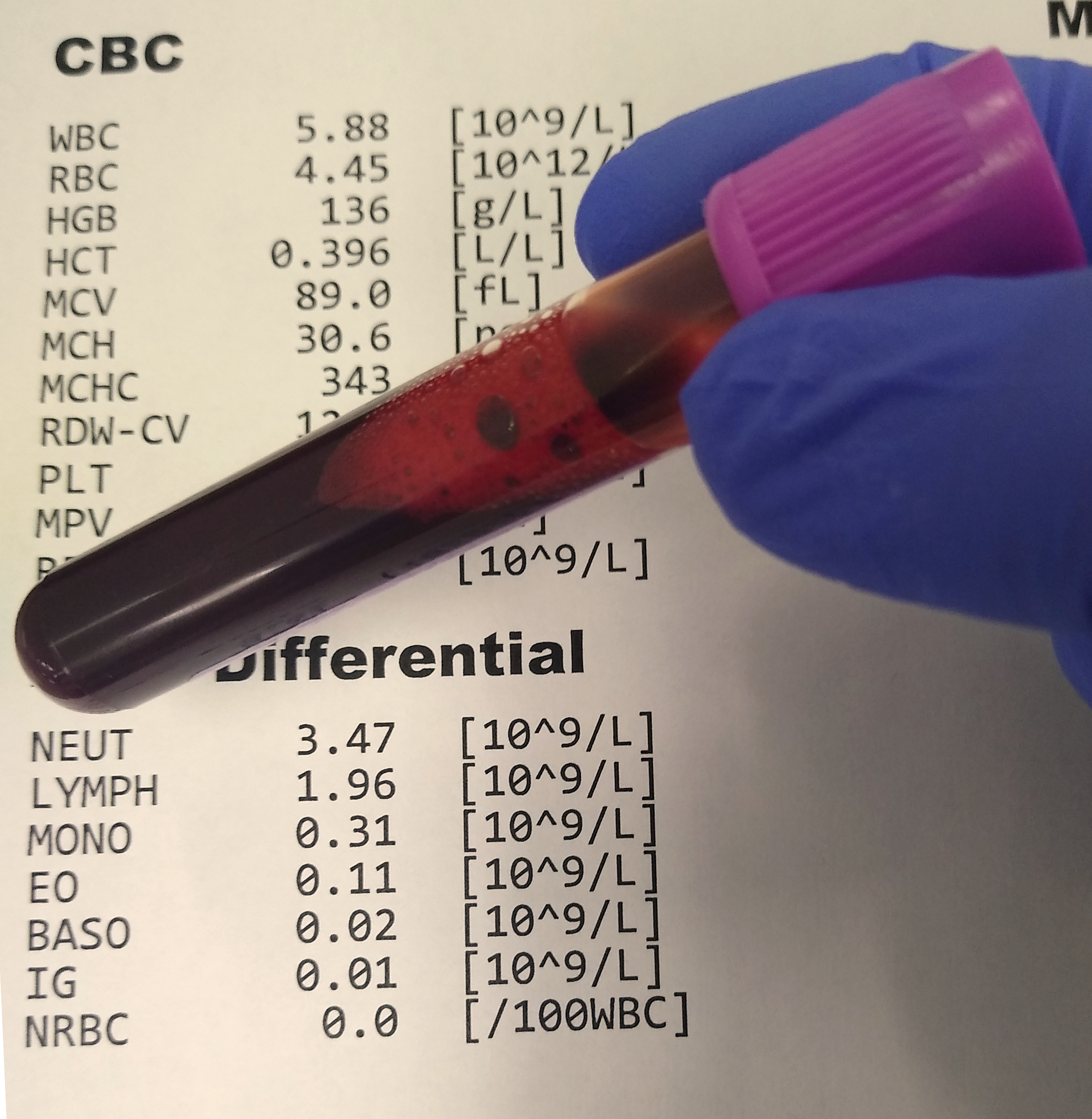Blood Chemistry 101 from a Functional Medicine Perspective
- Introduction to Blood Test Analysis
- Understanding Complete Blood Count (CBC)
- Insight into Complete Metabolic Panel (CMP)
- Studying Vitamin D
- Inflammation Markers - CRP
- Decoding Thyroid Markers
- Iron Markers
- Lipid Panel Assessment
- Micronutrient Markers: Folate, Vitamin B12
- Micronutrient Markers: Zinc, Copper, Magnesium
- Other Key Blood Chemistry Markers
- Implementing Lifestyle Recommendations for Improved Markers
- Pulling It All Together – Your Personal Health Assessment
Understanding Complete Blood Count (CBC)
Interpretation of Complete Blood Count from a Functional Medicine Perspective

Medical laboratory test.
Functional medicine is a holistic, patient-centered approach to healthcare that focuses on identifying and addressing the root cause of disease. It views the body as one integrated system, not a collection of independent organs divided by medical specialties. This approach is particularly useful when interpreting the results of a Complete Blood Count (CBC), as it allows for a more comprehensive understanding of a person's overall health.
Understanding CBC from a Functional Medicine Perspective
A CBC test measures the number of blood cells in a sample of your blood. The cells that are counted are red blood cells, white blood cells, and platelets. It also measures the amount of hemoglobin in your blood and the fraction of the blood composed of red blood cells (hematocrit).
In functional medicine, these results are not just viewed in isolation. Instead, they are considered in conjunction with other factors such as a person's lifestyle, diet, and overall health. For example, a low red blood cell count could be a sign of anemia, but it could also be due to a nutritional deficiency, chronic disease, or other factors.
Interpreting High and Low Counts
In functional medicine, high or low counts are not automatically seen as a cause for alarm. Instead, they are viewed as potential indicators of underlying issues that need to be addressed.
For example, a high white blood cell count could indicate an infection, inflammation, or an immune response. However, it could also be a sign of stress, lack of sleep, or a poor diet. Similarly, a low platelet count could be a sign of a bleeding disorder, but it could also be due to vitamin B12 deficiency, liver disease, or other factors.
The Role of Lifestyle Changes
One of the key principles of functional medicine is that lifestyle changes can have a significant impact on a person's health. This is particularly true when it comes to blood counts.
For example, a diet rich in iron, vitamin B12, and folate can help increase red blood cell counts. Regular exercise can help boost white blood cell counts, which can improve immune function. Adequate sleep and stress management can also have a positive impact on your blood counts.
Case Studies
To illustrate these principles, let's consider a few case studies:
-
A patient with a high white blood cell count was found to have a poor diet and high stress levels. By improving their diet and managing their stress, they were able to lower their white blood cell count and improve their overall health.
-
A patient with a low red blood cell count was found to have a vitamin B12 deficiency. By supplementing with vitamin B12, they were able to increase their red blood cell count and alleviate their symptoms of fatigue and weakness.
These case studies demonstrate how functional medicine can provide a more comprehensive understanding of CBC results, and how lifestyle changes can help improve these results.
In conclusion, interpreting CBC results from a functional medicine perspective can provide a more holistic view of a person's health. It allows for a more comprehensive understanding of the underlying causes of high or low counts, and empowers individuals to make lifestyle changes that can improve their health.